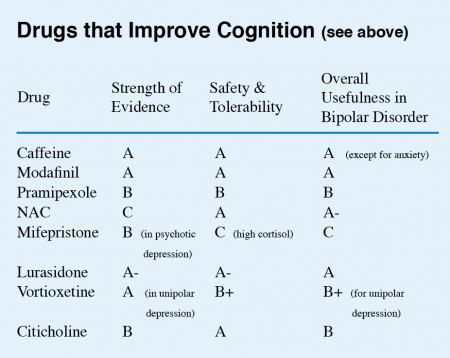Approaches to Restoring Cognition in Unipolar and Bipolar Depression
Many people with bipolar disorder suffer cognitive difficulties, and these may progress as a function of the number of mood episodes they experience. At the 2015 meeting of the International Society for Bipolar Disorders, researcher Eduard Vieta described the importance of directly prescribing diet, exercise, good sleep hygiene, smoking avoidance, and cognitive exercises designed to maintain cognitive reserves in people with bipolar disorder. Vieta stressed that one of the most important approaches to maintaining cognition is to help patients achieve and maintain remission. He also noted that those patients with lithium levels of .6meq/l or greater did not see cognitive deterioration.
Some treatments for bipolar disorder can contribute to cognition problems. Topiramate and benzodiazepines can impair cognition, as can atypical antipsychotic drugs and certain antidepressants that block the neurotransmitter acetylcholine. Avoiding these treatments and those with sedative side effects may also be helpful.
Vieta listed a series of drugs with some promise for improving cognition. (These did not include treatments for dementia, which include memantine and a group of drugs that increase acetylcholine by inhibiting its breakdown.)
This editor (Robert M. Post) has taken the liberty of giving a letter grade (A to D) to each drug on Vieta’s list on the basis of the strength of the data supporting its efficacy, its safety and tolerability, and its overall usefulness for patients with bipolar disorder. These recommendations, like other material in the BNN, are subjective and likely to change as more systematic studies on these treatments are published.


